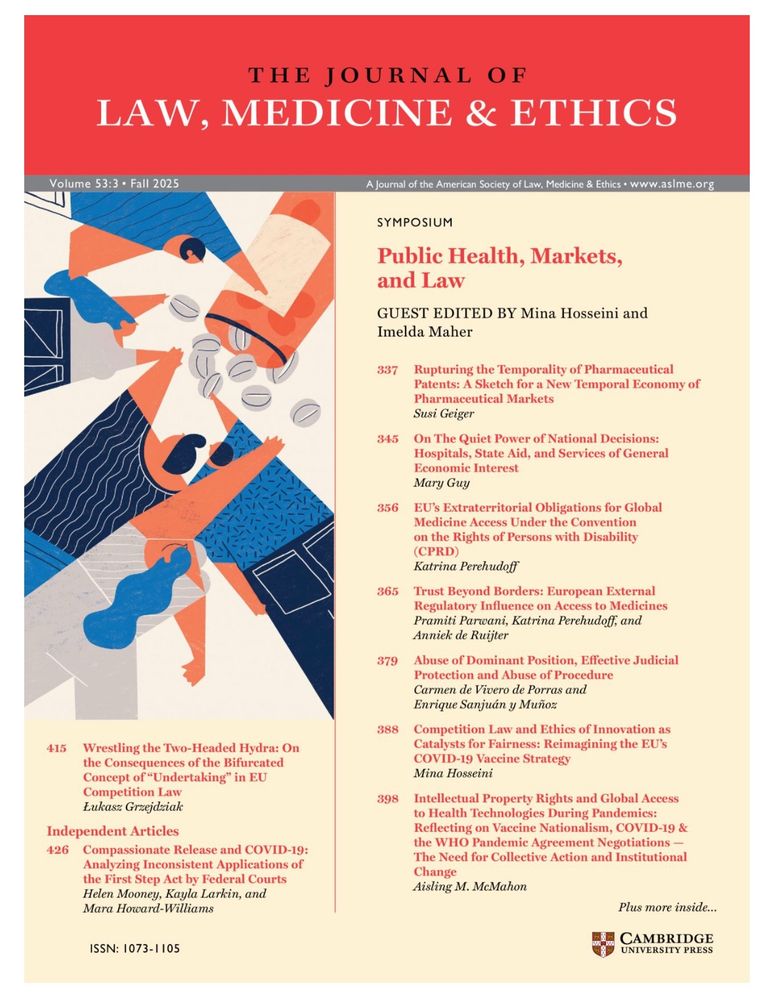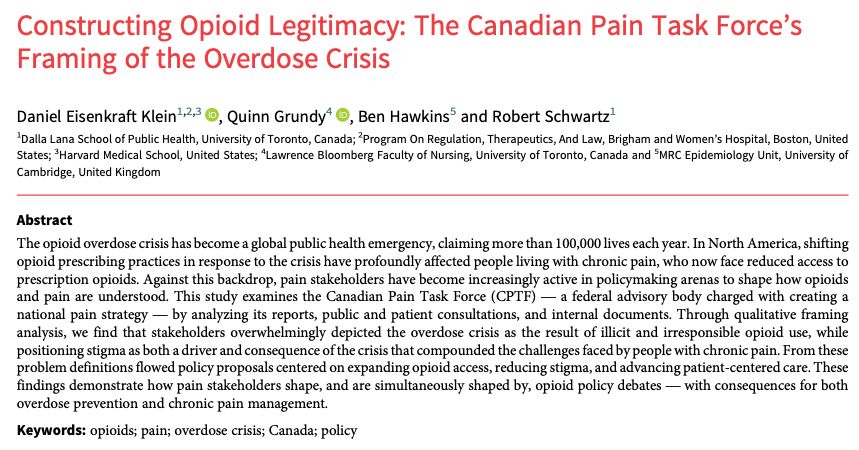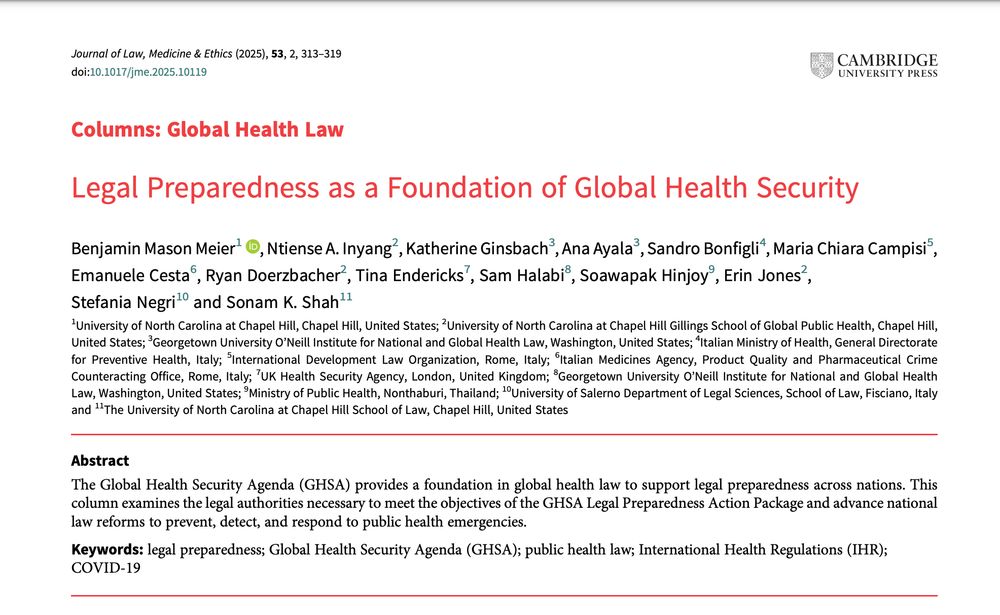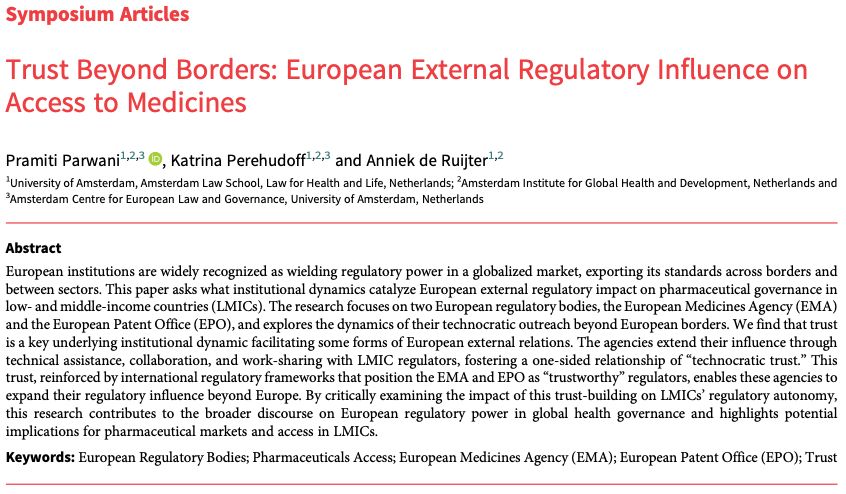The Journal of Law, Medicine and Ethics
@jlme-journal.bsky.social
280 followers
110 following
140 posts
The Journal of Law, Medicine & Ethics (JLME) is a leading peer-reviewed journal for research at the intersection of law, health policy, ethics, and medicine.
Posts
Media
Videos
Starter Packs
Reposted by The Journal of Law, Medicine and Ethics
Reposted by The Journal of Law, Medicine and Ethics
Reposted by The Journal of Law, Medicine and Ethics
Reposted by The Journal of Law, Medicine and Ethics
Reposted by The Journal of Law, Medicine and Ethics
Reposted by The Journal of Law, Medicine and Ethics
Reposted by The Journal of Law, Medicine and Ethics
Reposted by The Journal of Law, Medicine and Ethics
Reposted by The Journal of Law, Medicine and Ethics




















